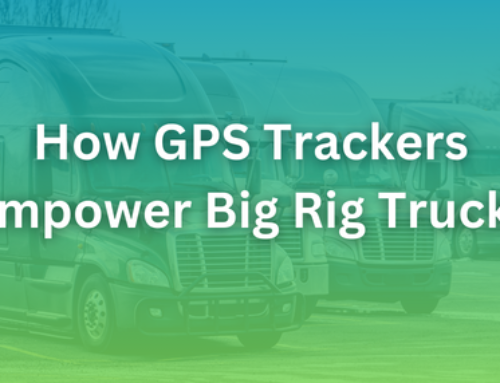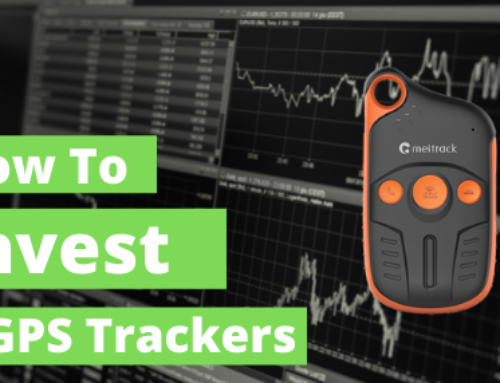In the fast-paced world of waste management, efficiency and sustainability are key. Garbage trucks have traditionally operated without much visibility or tracking capabilities, leading to inefficient routes, missed pickups, and excess fuel consumption. However, the advancement of GPS technology is revolutionizing the waste management industry and uncovering hidden benefits for garbage trucks.
With the integration of GPS trackers, waste management companies can now monitor their fleet in real time, optimizing routes and reducing overall fuel consumption. This not only saves money but also has a positive environmental impact by reducing emissions. Additionally, GPS trackers provide valuable insights into truck performance and maintenance needs, allowing for proactive maintenance and minimizing downtime.
But the benefits don’t stop there. The data collected from GPS trackers can be analyzed to identify patterns and trends, improving operational efficiency and customer service. By knowing the exact location of each truck, companies can provide customers with accurate estimates for pickup times and improve overall reliability.
In this article, we will delve deeper into the waste management revolution brought about by GPS trackers for garbage trucks and explore the hidden benefits that are improving efficiency, sustainability, and customer satisfaction in the industry.
Traditional challenges in waste management and the need for innovation
The waste management industry has long been plagued by a myriad of challenges that have hindered its efficiency and sustainability. Traditionally, garbage trucks have operated without much visibility or tracking capabilities, leading to a host of problems. One of the primary issues has been the lack of route optimization, resulting in inefficient and circuitous routes that waste time, fuel, and resources. This not only increases operational costs but also leads to higher greenhouse gas emissions, contributing to the growing environmental concerns surrounding the waste management industry.
Another significant challenge has been the inability to accurately monitor truck performance and maintenance needs. Without real-time data on factors such as fuel consumption, idling time, and engine diagnostics, waste management companies have struggled to proactively address maintenance issues, leading to increased downtime and higher repair costs. This, in turn, has had a cascading effect on customer service, as missed pickups and delayed service have become all too common.
The need for innovative solutions to address these challenges has become increasingly apparent. As the world becomes more conscious of the environmental impact of waste management practices, the industry has been under pressure to find ways to improve efficiency, reduce emissions, and enhance customer satisfaction. The emergence of GPS tracking technology has emerged as a promising solution, offering a transformative approach to waste management that can unlock a range of hidden benefits for garbage trucks and the companies that operate them.
Understanding GPS trackers and their role in waste management
GPS (Global Positioning System) trackers are devices that use satellite technology to provide real-time location and movement data for vehicles and other assets. In the context of waste management, GPS trackers have become a game-changing tool, revolutionizing the way garbage trucks are managed and operated.
These compact, durable devices are installed in garbage trucks, providing fleet managers with a comprehensive view of their vehicles’ movements, performance, and efficiency. By continuously transmitting data on the truck’s location, speed, and other key metrics, GPS trackers allow waste management companies to monitor their fleet in real-time and make data-driven decisions to optimize their operations.
The integration of GPS trackers into waste management operations has unlocked a wealth of benefits, from improved route planning and fuel efficiency to enhanced customer service and increased safety. By leveraging the data collected by these devices, companies can gain valuable insights into their fleet’s performance, identify areas for improvement, and implement strategies to streamline their operations and reduce their environmental impact.
Benefits of using GPS trackers for garbage trucks
The implementation of GPS trackers in garbage trucks has ushered in a new era of efficiency and sustainability for the waste management industry. These cutting-edge technologies have unlocked a range of hidden benefits that are transforming the way garbage trucks are managed and operated.
One of the primary benefits of GPS trackers is their ability to optimize route planning and scheduling. By tracking the real-time location and movement of each garbage truck, fleet managers can identify the most efficient routes, minimize unnecessary mileage, and ensure that all scheduled pickups are completed in a timely manner. This not only reduces operational costs but also has a positive impact on the environment by reducing fuel consumption and greenhouse gas emissions.
Another significant benefit of GPS trackers is their role in enhancing customer service and satisfaction. With the ability to monitor the location of each truck, waste management companies can provide customers with accurate estimates for pickup times, reducing the frustration and inconvenience associated with missed or delayed pickups. Additionally, the data collected by GPS trackers can be used to identify patterns and trends, allowing companies to proactively address any issues and improve their overall service delivery.
Furthermore, GPS trackers play a crucial role in improving the safety and security of waste management operations. By tracking the location and driving behavior of each truck, fleet managers can identify and address any instances of speeding, reckless driving, or unauthorized vehicle use. This not only protects the safety of the drivers and the general public but also helps to mitigate the risk of accidents and liability claims.
Improving route optimization and efficiency with GPS trackers
One of the most significant benefits of using GPS trackers for garbage trucks is the ability to optimize route planning and improve overall operational efficiency. By leveraging the real-time location data provided by these devices, waste management companies can identify the most efficient routes, minimize unnecessary mileage, and ensure that all scheduled pickups are completed in a timely manner.
Through advanced route optimization algorithms and analytics, GPS trackers can help fleet managers identify the most efficient routes based on factors such as traffic patterns, road conditions, and the location of each pickup point. This allows for the creation of streamlined routes that reduce the total distance traveled, resulting in significant savings in fuel consumption and operational costs.
Moreover, GPS trackers can provide valuable insights into the performance and productivity of individual trucks and drivers. By monitoring factors such as idling time, stops, and driving behavior, fleet managers can identify areas for improvement and implement targeted strategies to enhance efficiency. For example, they can identify routes or drivers that are consistently underperforming and make adjustments to optimize their performance.
The benefits of improved route optimization and efficiency extend beyond just cost savings. By reducing the total distance traveled and the time spent on the road, waste management companies can also reduce their environmental impact, lowering greenhouse gas emissions and contributing to a more sustainable waste management ecosystem.
Reducing fuel consumption and emissions through GPS tracking
One of the most significant hidden benefits of using GPS trackers for garbage trucks is the ability to reduce fuel consumption and greenhouse gas emissions. By optimizing routes, monitoring driving behavior, and identifying areas for improvement, waste management companies can significantly reduce their fuel usage and environmental impact.
GPS trackers provide real-time data on various factors that influence fuel consumption, such as vehicle speed, idling time, and route efficiency. This information allows fleet managers to identify and address inefficient driving practices, such as excessive idling or speeding, which can have a significant impact on fuel usage and emissions.
Furthermore, the route optimization capabilities of GPS trackers enable waste management companies to plan the most efficient routes, minimizing the total distance traveled and reducing the overall fuel consumption of their fleet. By avoiding unnecessary mileage and optimizing the flow of trucks, companies can achieve substantial savings in fuel costs while also reducing their carbon footprint.
The environmental benefits of using GPS trackers in waste management extend beyond just fuel savings. By reducing emissions, waste management companies can contribute to a cleaner, more sustainable future. As the world becomes increasingly conscious of the environmental impact of various industries, the ability to demonstrate a commitment to sustainability and environmental stewardship can be a significant competitive advantage for waste management companies.
Enhancing customer service and satisfaction with GPS trackers
In the waste management industry, customer service and satisfaction are critical factors that can make or break a company’s success. GPS trackers have emerged as a powerful tool for enhancing the customer experience and improving overall customer satisfaction.
One of the key benefits of using GPS trackers for garbage trucks is the ability to provide customers with accurate and real-time information about pickup times. By tracking the location and movement of each truck, waste management companies can give customers precise estimates for when their garbage or recycling will be collected, reducing the frustration and inconvenience associated with missed or delayed pickups.
Moreover, the data collected by GPS trackers can be used to identify patterns and trends in customer service, allowing companies to proactively address any issues and improve their overall service delivery. For example, if GPS data reveals that certain routes or neighborhoods consistently experience delays or missed pickups, fleet managers can take immediate action to address the problem, whether it’s by adjusting schedules, optimizing routes, or addressing any underlying operational challenges.
In addition to improving the reliability and timeliness of service, GPS trackers can also enhance customer communication and transparency. By providing customers with access to real-time information about the location and status of their garbage trucks, waste management companies can foster a greater sense of trust and engagement, ultimately leading to higher levels of customer satisfaction and loyalty.
Improving safety and security in waste management operations
Safety and security are paramount concerns in the waste management industry, and GPS trackers have emerged as a powerful tool for enhancing both. By monitoring the location and driving behavior of garbage trucks, fleet managers can identify and address any instances of speeding, reckless driving, or unauthorized vehicle use, protecting the safety of drivers, customers, and the general public.
GPS trackers can also play a crucial role in improving the overall security of waste management operations. By tracking the location of each truck, fleet managers can quickly identify and respond to any instances of theft or unauthorized vehicle use, helping to prevent the loss of valuable assets and ensuring the integrity of the company’s operations.
Furthermore, the data collected by GPS trackers can be used to investigate and address any incidents or accidents that may occur. By providing a detailed record of a truck’s movements and driving behavior, these devices can help fleet managers identify the root causes of such events and implement corrective measures to prevent similar occurrences in the future.
The safety and security benefits of GPS trackers extend beyond just the immediate operational concerns of the waste management industry. By demonstrating a commitment to safety and security, waste management companies can also enhance their reputation and build trust with customers, regulators, and the broader community, positioning themselves as responsible and reliable partners in the waste management ecosystem.
Case studies of successful implementation of GPS trackers in waste management
To illustrate the real-world benefits of using GPS trackers for garbage trucks, let’s explore a few case studies of waste management companies that have successfully implemented these technologies in their operations.
One such example is the city of San Jose, California, which implemented a GPS tracking system for its fleet of garbage trucks in 2015. By leveraging the data collected by these devices, the city was able to optimize its routes, resulting in a significant reduction in fuel consumption and greenhouse gas emissions. In just the first year of the program, the city reported a 10% decrease in fuel usage and a corresponding drop in carbon emissions.
Another success story comes from the city of New York, which has been using GPS trackers to monitor its waste collection fleet since 2013. By analyzing the data provided by these devices, the city was able to identify and address inefficient driving practices, such as excessive idling and speeding. This, in turn, led to a 5% reduction in fuel consumption and a 7% decrease in maintenance costs, all while improving the reliability and timeliness of the city’s waste collection services.
In the private sector, waste management company Waste Management, Inc. has been a pioneer in the use of GPS trackers for its fleet of garbage trucks. By integrating these technologies into its operations, the company has been able to optimize routes, reduce fuel consumption, and enhance customer service. As a result, Waste Management has reported significant cost savings and a measurable reduction in its environmental impact, underscoring the transformative potential of GPS trackers in the waste management industry.
Embracing the waste management revolution with GPS trackers
The waste management industry is undergoing a transformative revolution, and GPS trackers have emerged as a critical driver of this change. By providing real-time data and insights into the performance and efficiency of garbage trucks, these cutting-edge technologies are unlocking a range of hidden benefits that are improving operational efficiency, reducing environmental impact, and enhancing customer satisfaction.
From optimizing routes and reducing fuel consumption to improving safety and security, GPS trackers are revolutionizing the way waste management companies operate. By embracing these technologies, industry leaders are positioning themselves for long-term success, delivering better service to their customers while contributing to a more sustainable future.
As the world becomes increasingly conscious of the environmental impact of waste management practices, the ability to demonstrate a commitment to sustainability and innovation will be a significant competitive advantage. GPS trackers are not just a tool for improving operational efficiency; they are a strategic asset that can help waste management companies differentiate themselves, build trust with customers and regulators, and lead the industry toward a more sustainable future.
The waste management revolution is here, and the time to embrace GPS trackers is now. By harnessing the power of these transformative technologies, waste management companies can unlock a world of hidden benefits, driving efficiency, sustainability, and customer satisfaction to new heights. The future of waste management is bright, and it’s all thanks to the power of GPS trackers.





